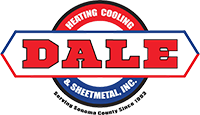Here in California, you may have been hearing a lot about electric heat.
In the not-too-distant future, it’s going to affect you in one way, shape, or form.
Here’s one easy way to consider getting on-board with electric heat regulations.
Why the Switch to Electric Heat?
The reason for the switch is to cut down on the consumption of fossil fuels, reduce harmful emissions and ozone pollution from gas-powered heaters.
In as early as 2030, the goal in California is to phase out gas furnaces and water heaters. Of course, there will be grandfather clauses and other considerations, but it will become increasingly difficult for a homeowner to get replacement parts for a gas furnace.
Already this year, new construction requires the installation of electric heat capabilities for homes and commercial buildings.
The Benefits of Heat Pumps
While this new legislation may sound daunting, it is really an opportunity to take a look at cleaner, more efficient ways to heat and even cool your home.
When the time comes and you’re reviewing options, consider the benefits of installing a heat pump.
The popularity of heat pumps continues to rise and here are a few of the reasons why.
Eco-Friendly
Without the use of gas or other fuel to power the furnace, fossil fuel consumption and carbon emissions are reduced.
Heat pumps rely on electricity and most new models use an eco-friendly refrigerant for the cooling cycle. This eco-friendlier process also helps prevent ozone pollution and is safe for the ozone layer.
Efficient Heating
When it comes to heating you home quickly and efficiently, heat pumps do an outstanding job.
They work by bringing in fresh outside air, heating it up and distributing throughout your space.
Heat pumps offer a variety of options for controlling your heat with smart thermostats, remotes, or mobile apps to turn up the heat before you arrive home.
Efficient Cooling
One big draw of a heat pump is that it both heats and cools your home.
By choosing the reverse or air conditioning cycle, the heat pump takes hot air from inside and directs outdoors.
Dehumidifier
As air is processed through the heat pump, the heating function prevents condensation and in cooling mode, moisture is automatically removed.
For either heating or cooling, a heat pump acts as a dehumidifier.
Better Air Quality
Heat pumps promote better air quality because instead of re-circulating stale air throughout your home, fresh outdoor air is used. When outside air enters the heat pump, it is filtered to clean and purify the air.
The filters help reduce odors, dust, smoke and mold spores for healthier air and easier breathing.
Since they use air, there is no danger of natural gas fumes or emissions from circulating throughout your home.
Space Saving Design
Another reason for heat pump popularity is its space-saving design.
The units are built to be streamlined and blend in so well you may not even notice them.
The are more aesthetically pleasing and less intrusive than a regular furnace or AC unit.
Heat Pump Disadvantages
Installation Cost
The up-front costs of installing a heat pump are more expensive than installing a traditional HVAC system.
The bump in price comes from several factors such as the heating/cooling requirements of your home, make/model of the heat pump (air source or mini split ductless), distribution considerations, installation season, and efficiency ratings.
Electricity Usage
Because the heat pump relies on electricity for power, the unit may experience downtime or become inoperable in the event of a power outage.
However, traditional furnaces equipped with electric igniters or pilot lights may encounter the same issue.
Conclusion
At the end of the day, heat pumps are a great option for consideration as the trend moves towards electric heat.
For all your heating and cooling questions and needs, reach out to Dale HCS in Santa Rosa.

